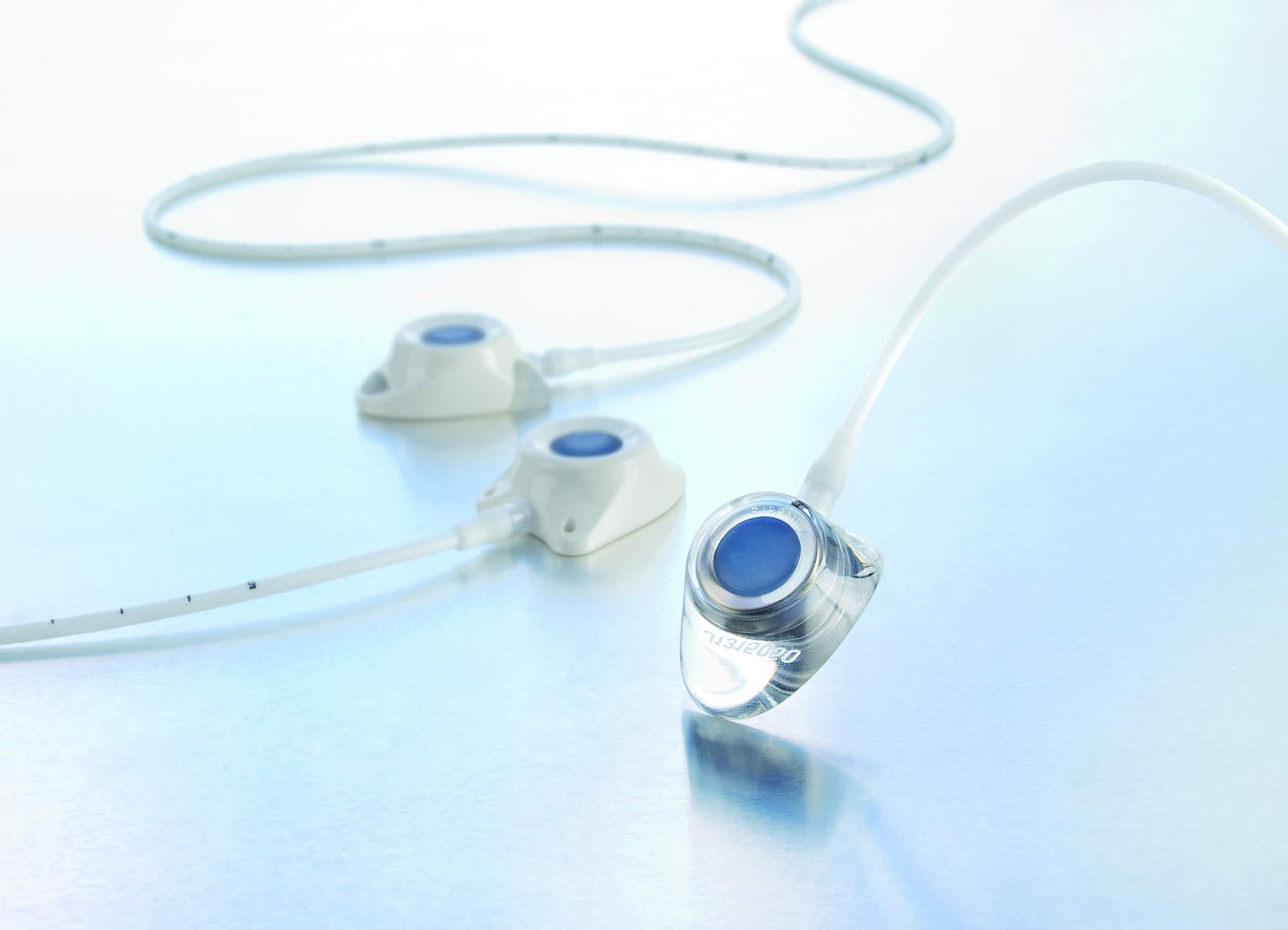
Cancer patients’ rights
Patients are entitled to receive good health and medical care and treatment that do not violate their human dignity, beliefs or privacy. Finland has a law on the status and rights of patients.
Health services must be equally accessible
Patients’ home language, individual needs and culture have to be taken into account as far as possible. Health services must be available equitably so that people are not placed in an unequal position, for instance due to age, health status or place of residence.
Children in Finland have the same right to health and medical care as adults. When minors receive medical treatment their opinions must where possible be taken into account with respect to their age and level of development. In matters of treatment, doctors and other health professionals evaluate the level of sophistication of patients who are minors.
If minors are able to decide about their treatment, they are entitled to forbid information concerning their health status and treatment being given to a guardian or other legal representative.
If minors are not able to decide about their own treatment, they receive treatment in agreement with their parents or other legal representatives.
The parents of minors do not have the right to refuse treatment that may be required to avert a threat to their children’s life or health.
National Supervisory Authority for Welfare and Health (Valvira) has provided further information on patient rights:
-
There are statutory maximum timeframes for patient’s access to public sector health care that must not be exceeded. At present there are no separate binding timeframes for access to cancer treatment.
Urgent or emergency treatment must be available immediately regardless of where in the country you live.
Non-emergency treatment is provided at health centres.
- Phone contact to a health centre during weekday opening hours must be available immediately or it must be possible to visit the health centre.
- If your treatment needs assessment require a visit to a health centre, this must take place within three days of contacting the health centre.
- Treatment at a health centre must be provided within three months at the latest.
- Non-urgent specialised treatment always requires a referral. A consultant physician must assess your treatment needs within three weeks after the referral has been made to a hospital. The assessment can be done on the basis of the referral or you can be asked to come for tests. Tests required for an assessment and the consultant physician’s evaluation must be done within three months of the receipt of the referral.
- If the tests prove that you require hospital treatment, it must begin within six months of the treatment needs assessment.
If your own health centre or hospital cannot treat you within the stipulated timeframe, arrangements must be made for you to receive treatment elsewhere, either in another hospital district or privately. This must not incur you any extra costs.
Regional State Administrative Agencies and the National Supervisory Authority for Welfare and Health monitor the implementation of the treatment access rules.
Regional State Administrative Agencies(opens in a new window)
National Supervisory Authority for Welfare and Health (Valvira)
-
In the public health care system, you can select the health centre corresponding to your primary health care services. You can change health centre by written notification at most once a year.
You can choose the health centre and specialised medical unit from any of the country’s public health centres and hospitals. Choosing a place of specialised medical treatment is done together with the doctor referring you.
You are also entitled to choose the doctor or other health professional that will treat you, within the scope of available places of treatment.
Further information on choosing your place of treatment is provided in the Ministry of Social Affairs and Health:
Choosing your place of treatment (in Finnish and in Swedish)
-
You are entitled to receive urgent medical treatment when you are temporarily staying in another EU or EFTA country or in Switzerland. To do so you can obtain a European Health Insurance Card from the Social Insurance Institution (Kela).
European Health Insurance Card (Kela)(opens in a new window)
You may also apply for planned treatment in an EU or EEA member state or Switzerland with or without pre-authorisation. You can apply for pre-authorisation from the Kela. If you are seeking treatment without pre-authorisation, you can later be reimbursed for medical expenses by Kela.
You should find out in advance such things as the translation costs of patient records and language interpretation costs. You must pay the client fee according to the legislation of the country where you receive treatment. You can apply to Kela to be reimbursed for travel, accommodation and medication costs. It is worth noting that patient insurance does not cover treatment received abroad, and that matters concerning patient injury come under the legislation of the country providing your treatment.
If you obtain treatment in a country other than in the EU and EEA or Switzerland, Kela will not usually reimburse the expenses.
Cancer patients going abroad, particularly outside the EU and ETA as well as Switzerland should find out in advance what different types of insurance cover, such as travel insurance.
Further information on getting treatment abroad:
National Contact Point for Cross-Border Health Care in Kela(opens in a new window)
Ministry of Social Affairs and Health (in Finnish and in Swedish)(opens in a new window)
-
Having cancer can significantly undermine your and your family’s financial situation. Cancer patients are entitled to a number of social welfare benefits. In addition to the Social Insurance Institution (Kela), workplace funds and private insurance companies play a part in reimbursing sickness expenses. Cancer patients should check which bodies are obliged to reimburse expenses.
The Association of Cancer Patients in Finland has published a guide on social benefits concerning cancer patients. The guide is available in Finnish(opens in a new window) and in Swedish(opens in a new window).
-
Treatment requires the consent of patients. If you refuse treatment, a different method of treatment should be agreed. A patient may also refuse treatment altogether. If you are incapable of making a decision on treatment, your wishes have to be ascertained with the help of your family by giving them the necessary information about your condition and possible treatment.
You may also do an advance decision. An advance decision is when you state your wishes concerning your own treatment, if due to severe illness, accident or old age infirmity you lose your legal capacity.
Advance decision (The National Institute for Health and Welfare, THL)
-
The information in patient records is confidential and medical personnel may not pass on data from them to a third party without your written permission. Your relatives are also considered to be a third party.
As a patient, you must be given information about your health status, scope of treatment, risk factors and treatment alternatives. The information must be given in such a way that you have a sufficient understanding of its content.
You are entitled to examine the information entered into your patient record and demand that incorrect information is altered.
The National Archive of Health Information (Kanta) is an online public service where everyone can check his or her patient records and electronic prescriptions.
The National Archive of Health Information (Kanta)(opens in a new window)
-
Each health care unit must by law have a patient ombudsman. The ombudsman is an expert in patient rights from whom you can obtain information about the status and rights of patients. If necessary, the patient ombudsman will assist you with drawing up an objection, complaint or reimbursement claim.
-
If you are dissatisfied with your treatment or the way you are dealt with, you can submit a written objection to the manager in charge of the clinic or health care unit, which must be answered in writing. The answer must indicate what action has been taken or how the matter has been resolved.
-
If you are dissatisfied with your care or your treatment you can submit a written complaint to the regional state administrative agency. The complaint is given a written decision. The outcome may be that attention is drawn to the matter, or that a reprimand or a warning is issued. A complaint cannot reverse a treatment decision, nor can the authority award damages.
-
Patient insurance covers any injuries to patients arising in connection with treatment given in Finland. The Patient Insurance Centre is responsible for damages awarded for injury to patients. Damages can be sought by completing the notice of patient injury form, available from a patient ombudsman or social worker.
These topics may also be of your interest

Cancer patients’ income and tax
Having cancer can affect many things to do with your income. Reimbursements and allowances depend on the patient’s life situation.
Read article
Cancer treatment drugs and reimbursements
The Social Insurance Institution Kela reimburses the costs of prescription drugs and part of the costs of emollients and clinical nutrients prescribed for treating illnesses.
Read article
Travel expense reimbursements for cancer patients
The Social Insurance Institution (Kela) reimburses the costs of travel for cancer treatment and rehabilitation. You can claim for travel for doctor’s appointments or for examinations ordered by a doctor or for treatment.
Read article